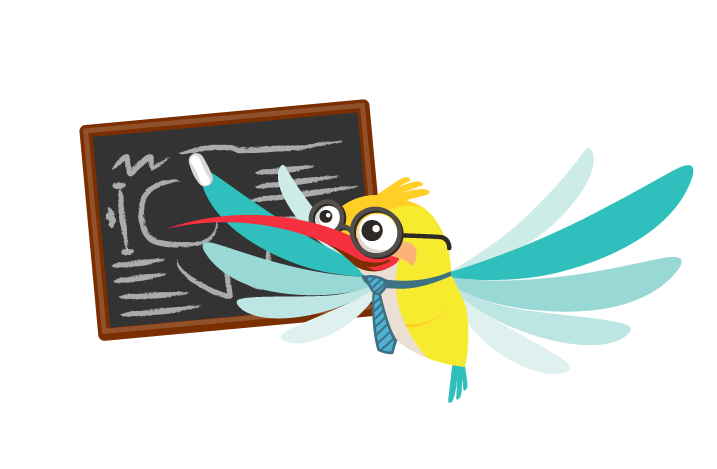Rules is a lightweight library written in Golang to simplify the building of contextually aware, declaritive rules.
To get started with the Flogo Rules you'll need to have a few things
- The Go programming language version 1.8 or later should be installed.
- The GOPATH environment variable on your system must be set properly
$ go get -u github.com/project-flogo/rules/...
Note that the -u parameter automatically updates rules if it exists
Getting started should be fairly easy. Lets start off with some definitions around various types used.
A Tuple represents an event or a business object and provides runtime data to the rules. It is always of a certain type.
A TupleTypeDescriptor defines the type or structure of a Tuple. It defines a tuple's properties and data types, and primary keys. It also defines the time to live for the tuple
A TupleType is a name or an alias for a TupleTypeDescriptor
A Rule constitutes of multiple Conditions and the rule triggers when all its conditions pass
A Condition is an expression involving one or more tuple types. When the expression evaluates to true, the condition passes. In order to optimize a Rule's evaluation, the Rule network needs to know of the TupleTypes and the properties of the TupleType which participate in the Condition evaluation. These are provided when constructing the condition and adding it to the rule.
A Action is a function that is invoked each time that a matching combination of tuples are found that result in a true evaluation of all its conditions. Those matching tuples are passed to the action function.
A RuleSession is a handle to interact with the rules API. You can create and register multiple rule sessions. Rule sessions are silos for the data that they hold, they are similar to namespaces. Sharing objects/state across rule sessions is not supported.
Each rule creates its own evaluation plan or a network. Multiple rules collectively form the rule network
Tuples can be created using NewTuple and then setting its properties. The tuple is then Assert-ed into the rule session and this triggers rule evaluations.
A tuple can be Retracted from the rule session to take it out of play for rules evaluations.
Now lets see some code in action. Below code snippet demonstrates usage of the Rules API,
First we start off with loading the TupleDescriptor. It accepts a JSON string defining all the tuple descriptors.
fmt.Printf("Loaded tuple descriptor: \n%s\n", tupleDescriptor)
//First register the tuple descriptors
err := model.RegisterTupleDescriptors(tupleDescriptor)
if err != nil {
fmt.Printf("Error [%s]\n", err)
return
}
Next create a RuleSession and add all the Rules with their Conditions and Actionss.
//Create a RuleSession
rs, _ := ruleapi.GetOrCreateRuleSession("asession")
//// check for name "Bob" in n1
rule := ruleapi.NewRule("n1.name == Bob")
rule.AddCondition("c1", []string{"n1"}, checkForBob, nil)
rule.SetAction(checkForBobAction)
rule.SetContext("This is a test of context")
rs.AddRule(rule)
fmt.Printf("Rule added: [%s]\n", rule.GetName())
// check for name "Bob" in n1, match the "name" field in n2,
// in effect, fire the rule when name field in both tuples is "Bob"
rule2 := ruleapi.NewRule("n1.name == Bob && n1.name == n2.name")
rule2.AddCondition("c1", []string{"n1"}, checkForBob, nil)
rule2.AddCondition("c2", []string{"n1", "n2"}, checkSameNamesCondition, nil)
rule2.SetAction(checkSameNamesAction)
rs.AddRule(rule2)
fmt.Printf("Rule added: [%s]\n", rule2.GetName())
//Finally, start the rule session before asserting tuples
//Your startup function, if registered will be invoked here
rs.Start(nil)
Here we create and assert the actual Tuple's which will be evaluated against the Rule's Condition's defined above.
//Now assert a "n1" tuple
fmt.Println("Asserting n1 tuple with name=Tom")
t1, _ := model.NewTupleWithKeyValues("n1", "Tom")
t1.SetString(context.TODO(), "name", "Tom")
rs.Assert(context.TODO(), t1)
//Now assert a "n1" tuple
fmt.Println("Asserting n1 tuple with name=Bob")
t2, _ := model.NewTupleWithKeyValues("n1", "Bob")
t2.SetString(context.TODO(), "name", "Bob")
rs.Assert(context.TODO(), t2)
//Now assert a "n2" tuple
fmt.Println("Asserting n2 tuple with name=Bob")
t3, _ := model.NewTupleWithKeyValues("n2", "Bob")
t3.SetString(nil, "name", "Bob")
rs.Assert(context.TODO(), t3)
Finally, once all Rule Condition's are evaluated and Action's are executed, we can Retract all the Tuple's from the RuleSession and unregister the RuleSession.
//Retract tuples
rs.Retract(context.TODO(), t1)
rs.Retract(context.TODO(), t2)
rs.Retract(context.TODO(), t3)
//delete the rule
rs.DeleteRule(rule.GetName())
//unregister the session, i.e; cleanup
rs.Unregister()
$ go get github.com/project-flogo/rules/examples/rulesapp
Either manually run from source
$ cd $GOPATH/src/github.com/project-flogo/rules/examples/rulesapp
$ go run main.go
or install and run
$ cd $GOPATH/src/github.com/project-flogo/rules/examples/rulesapp
$ go install
$ ./$GOPATH/bin/rulesapp
To use the Rules action in your Flogo App, refer to examples/flogo/simple/README
If you have any questions, feel free to post an issue and tag it as a question, email [email protected] or chat with the team and community:
- The project-flogo/Lobby Gitter channel should be used for general discussions, start here for all things Flogo/Flogo Rules,etc!
- The project-flogo/developers Gitter channel should be used for developer/contributor focused conversations.
Flogo Rules source code in this repository is under a BSD-style license, refer to LICENSE



